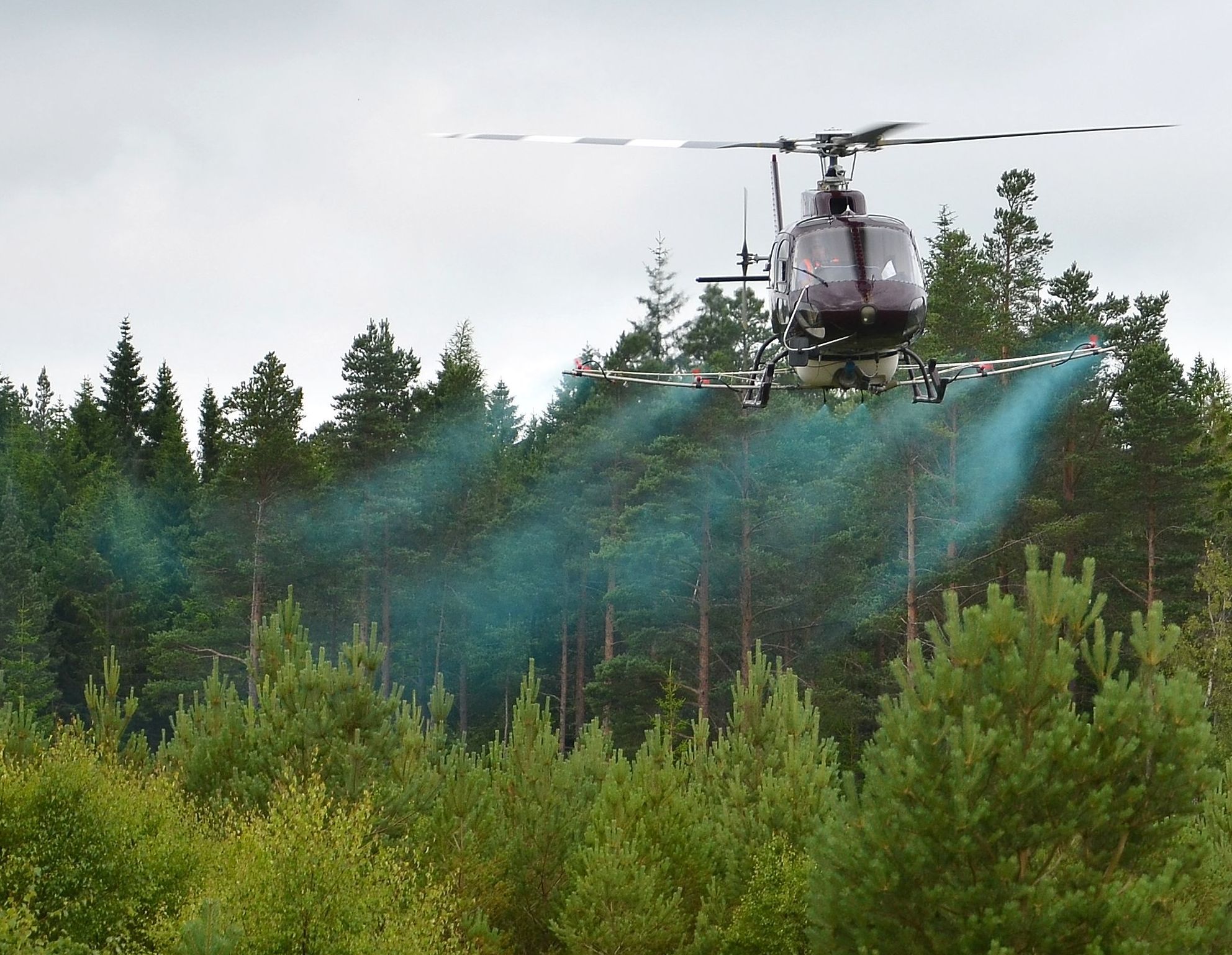A helicopter spraying trial to try to prevent the impact of a deadly tree disease in the north will resume in the coming weeks.
A section of Millbuie Forest on the Black Isle will be treated with copper fungicide, long used on cereal and potato crops, to see if it can limit the impact of the pine disease, needle blight.
Weather permitting, Forestry Commission Scotland (FCS) will spray a 34.6acre site within the forest for one hour, on one day, between June 11 and July 5.
It follows a similar test in 2013 on a 12.4acre Scots pine site in Monaughty forest near Elgin.
The planned 2014 trial in Millbuie Forest was postponed due to unsuitable weather conditions during the application window.
Hugh Clayden, the commission’s tree health policy adviser, said: “Scotland’s forests, including our precious Caledonian pinewoods, are an intrinsic, vitally important economic and environmental asset. Limiting significant damage to them from tree pests and diseases is a continuing challenge and we need to consider all options when looking at the most effective way of managing these threats.
“We will assess whether there is any significant impact on non-target species – such as fungi, lichens, insects and plants – and we are also looking to see if there are other, more effective fungicide products that could be considered for aerial application.”
The fungal pathogen responsible for the disease attacks pine needles, which in turn limits the rate of tree growth, potentially leading to their death as well as reducing the timber yield and value.
The potential future impact of the disease on Caledonian pinewoods highlights the need to find ways to manage it now.
If the trial proves effective, it could help reduce the wider impacts of the disease and buy time for the FCS to build longer-term resilience in the forests.
This might include finding and using less susceptible pine, greater use of alternative tree species, exploring other, potentially more efficient chemical and biological control methods, or using techniques to create conditions less favoured by fungal pathogens.
A small area around the trial site will be closed on the day the spraying takes place and the public will be informed of the closure by FCS on social media.
